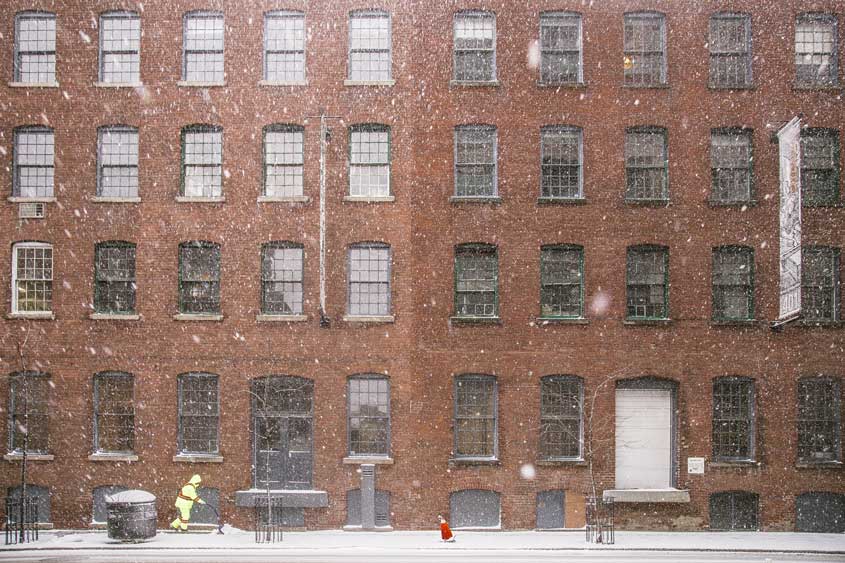Your Rights in a Slip and Fall Case Caused by Winter Weather
It’s the beginning of summer. The sun is out, the neighborhood kids are catching fireflies, and the idea of snow and ice seems like a distant memory. However, there is no doubt in the Midwest that winter will return, and it is important that you are aware of liability in your state when it pertains […]
June 23, 2017

It’s the beginning of summer. The sun is out, the neighborhood kids are catching fireflies, and the idea of snow and ice seems like a distant memory. However, there is no doubt in the Midwest that winter will return, and it is important that you are aware of liability in your state when it pertains to weather, particularly winter storms.
All states handle weather liability differently, even the states in the Midwest who all experience relatively similar winters. It is important that you familiarize yourself with Indiana’s unique set of laws before the cold winds return, bringing with them the snowy and icy weather.
Liability of Business Owners

In Indiana, it is considered the general duty of any business owner to remove any snow or ice from his premises.
However, the fight about whether or not this legal duty was breached in any given slip and fall case is almost entirely dependent on the unique circumstances of each case.
A major example of this would be the time it takes for the manager to secure a safe perimeter. If a snow bank is forming for a week with no action to clear it, this could be considered a liability. However, there is no doubt that sometimes it is near impossible to maintain a completely clear environment during the heart of the winter. The minute you shovel the snow, a new layer will form.
One hotel owner was freed of any liability when an injury was caused just 25 minutes after an area was shoveled, because the snow was so heavy on that particular day and it regathered. This could be a huge factor in deciding whether the responsibility was actually breached.
Liability of Home Owners

It is a homeowner’s responsibility to maintain safe conditions on her own property. This includes the shoveling of snow. If someone is injured due to weather instances, the homeowner could be held liable.
Liability of the City to Clean Sidewalks

There is not currently any pre-existing duty under Indiana law for the city to remove snow and ice. Instead, many times, the owner of any property may be held liable for any slip and fall on public sidewalks if it can be proven that the condition was artificially created by the property owner. This does not include natural accumulation of snow.
It should be noted that in all of these cases, a slip and fall caused by black ice will typically be seen as an exception in terms of liability, because the property owner will most likely be unaware of the hazard due to the difficulty to see it.
Factors to Consider in Terms of Liability

When looking at liability, there are multiple factors that will be considered when looking to hold a person or company responsible for a personal injury:
Time: The amount of time it takes a person or company to clear the snow is important for the case. For example, if the condition is left untouched for weeks and leads to a personal injury, the owners of the property will likely be held liable. However, if the problem is handled in a timely manner, but continues to reoccur due to weather circumstances, then it is unlikely that the property owner will be held liable.
Prior Notice: Another important factor when placing liability in a slip and fall case caused by weather conditions is whether or not the property owner had prior notice of the dangerous condition. If the owner was alerted of a hazard and neglected to take any action to fix it, it would be much more likely that he would be held liable than if he were unaware of the hazard.
Recurring: A recurrence of an incident can be seen in terms of prior notice. If multiple slips and falls are caused in result of a specific hazard without any action taken to prevent the personal injury, the property owner can likely be held liable.
Artificial: Any artificial hazard that leads to a slip and fall can be considered a liability. An example may be a leak that is not handled that leads to black ice and, ultimately, a slip and fall case.
Although winter still feels far away, be sure to know your rights regarding personal injury due to hazardous weather conditions in Indiana. If you find yourself in such a situation, you may be entitled to compensation for your personal injury. Be sure to call Hensley Legal Group for a free consultation, or contact us online.